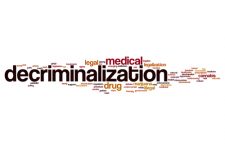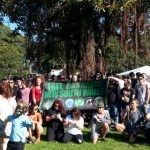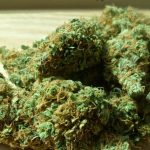Church-led Coalition Calls for Drug Decriminalisation

On Friday morning, Sir Richard Branson launched Uniting’s Fair Treatment campaign at Sydney Town Hall. The well-known drug reform advocate threw his support behind the campaign that’s pushing for the decriminalisation of the possession of drugs for personal use, as well as increased investment in harm reduction.
The church-led campaign which is calling on the NSW government to decriminalise the laws around personal drug use and possession is backed by 60-odd prominent organisations, including the Law Society of NSW, NSW Bar Association and Aboriginal Legal Service NSW/ACT.
The push follows a 2016 resolution passed by the Uniting Church’s NSW and ACT synods calling for further decriminalisation around personal drug use and greater direct investment in harm reduction strategies and drug treatments.
Significantly, Uniting is the only church in the world calling for drug decriminalisation. It’s also the organisation that runs the much-lauded Medically Supervised Injecting Centre (MSIC) in Kings Cross, which is another initiative Mr Branson is a firm supporter of.
On the decriminalisation of personal use
Uniting MSIC medical director Dr Marianne Jauncey also spoke at the campaign launch. She explained that Uniting wants to encourage a rethink around drugs, and she stressed that it’s important to remember that the campaign is about people, not substances.
“Uniting believes that problematic drug use should be viewed through a health lens, not a criminal one,” Dr Jauncey told Sydney Criminal Lawyers®. She added that society doesn’t response to health problems by arresting people, but rather the usual response is to help them.
“Decriminalisation does not mean legalisation,” the leading harm reduction advocate stressed. She explained that it’s about removing the “criminal penalties for drug use and possession.” It’s not about selling, providing or promoting drugs either, she further made clear.
Dr Jauncey pointed out that half of the Australian population admits to having tried illicit drugs at some stage in their lives, so “any law which criminalises half the population is just plain silly, and not sustainable.”
The Portuguese model
The shining example of successful drug decriminalisation is the experience in Portugal. In 2001, the Portuguese government took the unprecedented move of decriminalising all illicit substances. At that time, the country had been going through a crisis in illicit drug use.
Today, if an individual in Portugal is found with an amount that’s deemed personal of an illicit substance in their possession, they are not arrested and subsequently convicted, rather they’re sent to a dissuasion panel that decides whether they need counselling or not.
By 2015, the number of drug-related deaths in Portugal had dropped to 3 per million citizens, which was more than five times lower than the European average. And drug-related HIV infections plummeted to just 40 in 2014, compared with 1,016 in 2001.
There’s been no overwhelming increase in the use of drugs in Portugal since discrimination. There has been a large decrease in the amount of people coming into contact with the revolving door of the criminal justice system. And there’s also been a dramatic spike in those seeking drug treatment.
Investing in avenues out
The Fair Treatment campaign also has a focus on increasing drug treatment opportunities. Dr Jauncey said that around 200,000 Australians a year are unable to access alcohol and other drug treatments due to a lack availability.
“That means 50 percent of people who need treatment can’t get it,” she explained. And this particularly affects women with children and people living in remote areas.
“We need to remember that treatment works, that for every dollar we spend on treatment we save $7, and that treatment ultimately turns people’s lives around,” Dr Jauncey continued. “So, if anything should be a crime, it’s that we don’t fund treatment adequately.”
The doctor has also pointed out that over the past decade, the number of people who use drugs being diverted into treatment programs after coming into contact with the criminal justice system has been declining.
Reducing associated harms
However, at a time when it’s increasingly being acknowledged that the heavy-handed law enforcement approach to personal drug use should be done away with, Australian authorities have been doubling down on these drug war tactics.
Australian Criminal Intelligence Commission data shows that over the decade ending in 2015/16 arrests for personal drug use and possession in Australia almost doubled: rising from 73,800 to 135,037 arrests.
In this state, NSW police are increasing their presence at events like music festivals. Drug detection dogs are becoming a ubiquitous feature at youth events, even though they’ve been shown to cause punters to partake in harmful drug taking behaviours, such as panic overdosing.
There’s been at least two recorded incidents of individuals at festivals who panicked on seeing a drug dog operation and then took all of the drugs in their possession to avoid detection, which resulted in their deaths.
Recently, two young festivalgoers died at Sydney’s Defqon.1 festival of suspected overdoses. And in response NSW premier Gladys Berejiklian has repeatedly ruled out introducing pill testing, which is a proven harm reduction method that could have potentially saved the lives of both those who died.
Sparking meaningful change
“Fair Treatment is very thankful for Richard Branson’s support, and for his help in starting this conversation,” Dr Jauncey remarked. “We hope he helps light a fire in our community for change.”
The Virgin boss has been a tireless campaigner for the end of the war on drugs. He’s a key member of the Global Commission on Drugs, which is comprised of a number of the world’s former heads of state and leading intellectuals.
The Commission’s 2011 report declared that “the global war on drug has failed.” It then went onto outline that this intensification of drug law enforcement has led to the increased consumption of illicit substances, “the growth of a huge criminal black market”, and mass incarceration.
Dr Jauncey explained that Australia’s National Drug Strategy is based on a three-pronged harm reduction approach. But, the funding is heavily weighted towards law enforcement, while together harm reduction, treatment and education receive less than a quarter of funds.
“The Australian people recognise this disparity and want our policy makers to treat drug use as a health and social issue,” the doctor concluded.







